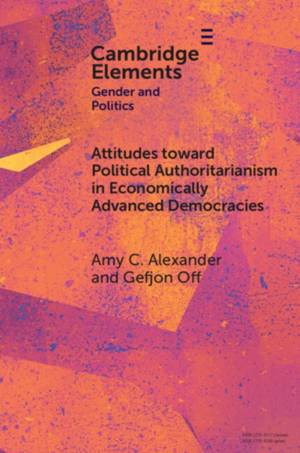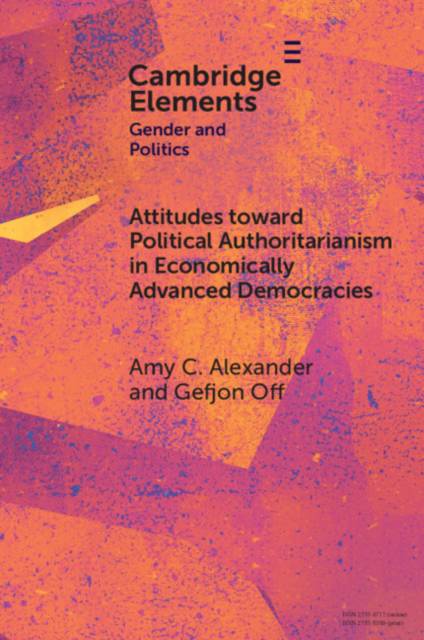
- Afhalen na 1 uur in een winkel met voorraad
- Gratis thuislevering in België vanaf € 30
- Ruim aanbod met 7 miljoen producten
- Afhalen na 1 uur in een winkel met voorraad
- Gratis thuislevering in België vanaf € 30
- Ruim aanbod met 7 miljoen producten
Zoeken
Attitudes toward Political Authoritarianism in Economically Advanced Democracies
The Role of Gender Values and Norms
Amy C Alexander, Gefjon Off
€ 24,45
+ 48 punten
Uitvoering
Omschrijving
This Element focuses on how individuals' gender values and populations' gender norms influence their attitudes toward political authoritarianism in economically advanced democracies. First, it theorizes that individuals' higher support for gender equality and freedom of sexuality (GEFS) decreases their support of political authoritarianism. This operates directly through the development of a belief system that is incompatible with political authoritarianism as a system rooted in and sustained through conformity to hegemonic masculine dominance. Additionally, this operates indirectly by strengthening support for pluralism, strengthening support for democratic socialization in households, and increasing rejection of the use of violence to control household social relations. Second, it theorizes how GEFS norms and political authoritarian norms are mutually reinforcing in shaping political culture at the country-level. The Element shows evidence consistent with these theories through analysis of data on OECD countries from 1995 to 2022 based on waves 3-7 of the World Values Surveys.
Specificaties
Betrokkenen
- Auteur(s):
- Uitgeverij:
Inhoud
- Aantal bladzijden:
- 90
- Taal:
- Engels
- Reeks:
Eigenschappen
- Productcode (EAN):
- 9781009374323
- Verschijningsdatum:
- 31/07/2025
- Uitvoering:
- Paperback
- Formaat:
- Trade paperback (VS)
- Afmetingen:
- 152 mm x 229 mm
- Gewicht:
- 131 g

Alleen bij Standaard Boekhandel
+ 48 punten op je klantenkaart van Standaard Boekhandel
Beoordelingen
We publiceren alleen reviews die voldoen aan de voorwaarden voor reviews. Bekijk onze voorwaarden voor reviews.







